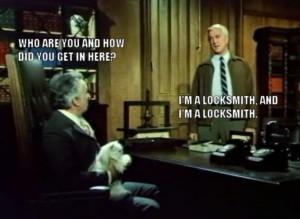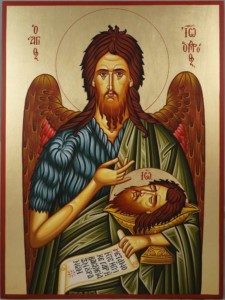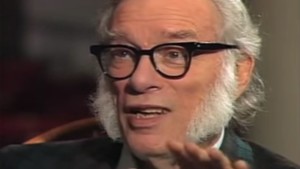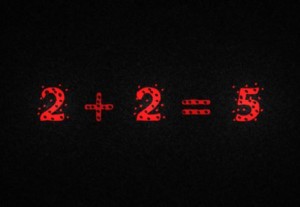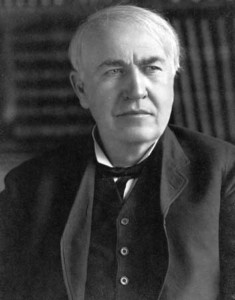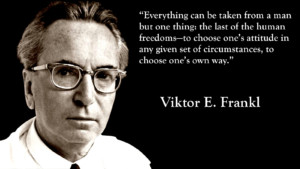Put on the armor of God.
This is the language of battle, even of war. Saint Paul writes about spiritual armor and spiritual warfare in several of his letters. But here, in today’s second reading from Ephesians, he is referring to the “panoply,” the full armor of a professional soldier. He explains why this is necessary: we must be ready to ward off attacks by principalities, powers, world rulers of this present darkness, evil spirits in the heavens.
If you were to read the accounts of the early monks, you would see that this language was common among the fathers of Christian monasticism. The biography of Saint Antony the Great, who, together with Saint Benedict, is depicted in the deesis above our altar, is filled with all kinds of spiritual battles between Antony and a host of demons. Saint Benedict, writing almost two hundred years later, alludes to the great hermits like Antony in the first chapter of his Rule, where he says that hermits fight hand-to-hand with the Devil. Saint Benedict’s own biography, written by Saint Gregory the Great, also has several stories of Benedict going toe-to-toe with the Devil and his underlings. He shows that the power of Jesus Christ in his saints is far greater than the power of evil.
But the Lord still wants us to fight, to enter the lists of this spiritual warfare. Over the course of the centuries, the common teaching drifted away from a realistic depiction of demons as having visible bodies and doing physical harm to monks. Writers came to the realization—or perhaps just preferred to believe—that spiritual warfare happens primarily in the realm of the mind. Demons test us by means of thoughts. The principal thoughts include lust, gluttony, avarice, anger, sadness, vainglory and pride.
You might recognize this list as being very similar to the more contemporary list of the seven capital sins. That represents the latest development in the tradition, bringing us up to the present day. Perhaps on the feast of Saint Benedict we can take stock of what has been lost amidst these changes. Perhaps we can ask whether monks and nuns might not have a significant contribution to make to today’s Church in recalling the dynamic of spiritual warfare.
When we talk about battling against vices, I suspect that we tend to think that we are battling ourselves. But all human action begins with thought. Often, we simply are not aware of the thought that precedes the action, because we aren’t attentive to our thoughts. They can seem to have a persuasive force from habit, from social custom, and so on.
In fact, once we start paying attention to thoughts, we might start wondering where they come from. Do they come from us or from somewhere else, or both? So it is that monks and nuns, especially of the contemplative orders, have a special role to play in this spiritual battle.
In the best-case scenario, such monks and nuns are on the front lines. We withdraw from the world and practice self-silencing to clarify what is going on in our minds: to notice the fact that actions follow thoughts, and to catch thoughts before they become actions. Then we can ask the question: does this thought come from God? Or does it come from the Devil, from Principalities, from powers, or from other lower-ranking demons?
Saint Benedict is the patron of Western Europe, which is probably the last distinction he would have anticipated. Like ourselves, he lived at a time of complete political upheaval. Ten years before his birth, the last of the Western Roman Emperors abdicated. This was followed by the terrible Gothic Wars, as the Eastern Byzantine Emperor Justinian tried to take back the Italian peninsula and reunite it with what was left of the old Roman world. The end result was widespread destruction all around Benedict’s monastery of Monte Cassino and the beginning of a period of cultural hibernation.
Saint Benedict did not seek a political solution to the grave disorders of his day. Rather he sought, in all simplicity, a life of solitude where he could focus on his own fidelity to the witness of Jesus Christ. Where he could meditate day and night on God’s word and put it into practice in the most radical way possible. Where he could watch his thoughts, purify his actions, and enter into real spiritual struggle by saying “no” to all kinds of temptation.
The first result was that others noticed his holiness and wanted to imitate him. This led him to write his Rule for monks, but also to take up the work of caring for others, of bringing Christ to the world. Eventually his way of life became so popular, and his Rule so widely recognized for its practical wisdom and fidelity to the gospel, that by the year 1100, all of Europe was dotted with Benedictine monasteries.
Under their influence, the European Middle Ages as we now know them came to be. There arose new gospel institutions like the Truce of God, chivalry—which is the knightly warrior code civilized into service of the poor and weak—devotion to our Lady, and prayers for the dead. All these practices, pervaded by the spirit and rhythms of the liturgy, flourished under the influence of Saint Benedict and his decision to arm himself and do battle for the one True King.
By withdrawing from the world, Saint Benedict and his disciples were able to replace the founding assumption of the previous world, the old Roman world founded in paganism and a drive for power, with a new vision of life under the Lordship of Jesus Christ.
May God help us to be worthy disciples of this great man. And may his example light a fire in the hearts of many young men and women, who might choose to fight the ills of this age not by becoming internet influencers or political operatives, but by humbly submitting all thoughts to Jesus Christ.

